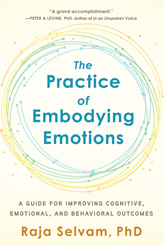A Reflection
By Asaf Rolef Ben-Shahar
Moshe Feldenkrais (1977), who developed the Feldenkrais method, considered walking as a series of controlled fallings. With each step we lose our balance and retrieve it. With each step we fall forward and block the fall with yet another step. Instead of perceiving falling as an undesired process, it becomes a prerequisite for moving forwards.
Movement necessitates falling.
Similarly, when Steven Mitchell (2000) compared this to the analytic relationship he wrote:
“The analytic relationship is no longer usefully understood as the sterile operation theatre Freud believed it could be. The analytic relationship is not as different from other human relationships as Freud wanted it to be. In fact, the intersubjective engagement between patient and analyst has become increasingly understood as the very fulcrum of and vehicle for the deep characterological change psychoanalysis facilitates” (p. 125).
These two statements by Feldenkrais and Mitchell offer a position that is representative of attachment theory and relational thinking. Such a position is both hopeful and heavy. It is hopeful because it expects nothing more of the psychotherapist than being human. It is heavy because it expects nothing less. Human relationships are a messy business; they are saturated with hopes and expectations, with falls and rebalancing, desires and shame, hurt, fears, and needs. The more mutually involved we become, the deeper the potential, and the risk of the therapeutic encounter.
Many therapeutic relationships end with the gratitude and transformation of both parties involved; but since therapeutic relationships are not so different from other human relationships, many also end up painfully. As therapists, for most of the time we are left to carry that hurt on our own. At times, the pain and hurt can be processed in supervision and therapy, yet at others we carry it—secretly—for many years. Our vulnerability, which makes us suitable to practice, also makes us prone to take matters to heart, and it is not uncommon for us to bear the pain alone; secretly, shamefully.
Click here to read the complete reflection.



